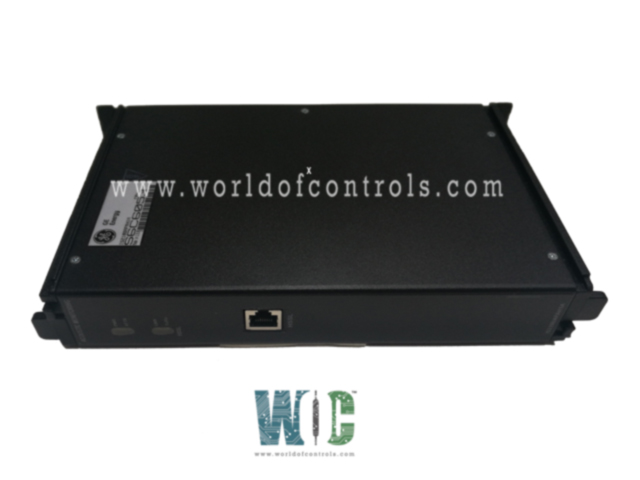
World Of Controls understands the criticality of your requirement and works towards reducing the lead time as much as possible.
IS210BAPAH1A - Analog Processor Module is available in stock which ships the same day.
IS210BAPAH1A - Analog Processor Module comes in UNUSED as well as REBUILT condition.
To avail our best deals for IS210BAPAH1A - Analog Processor Module, contact us and we will get back to you within 24 hours.
SPECIFICATIONS:
Part Number: IS210BAPAH1A
Manufacturer: General Electric
Series: Mark VI
Function: Analog Processor Module
Input Voltage: 125 V dc
Output Voltage: 24 V dc
Operating temperature: -30 to +65oC
Mounting: DIN-rail
Board Size: 23.495 cm high x 10.795 cm
Model Type: Safety I/O Pack
Repair: 3-5 Days
Availability: In Stock
Country of Manufacture: United States (USA)
Manual: GEH-6721
FUNCTIONAL DESCRIPTION:
IS210BAPAH1A is an Analog Processor Module manufactured and designed by General Electric as part of the Mark VI Series used in GE Speedtronic Gas Turbine Control Systems. The Analog Processor Module plays a crucial role in managing and regulating the analog signals associated with the operation of the turbine. Gas turbine control systems require precise monitoring and adjustment of various parameters to ensure optimal performance, efficiency, and safety. The Analog Processor Module aids in processing the continuous analog signals generated by sensors and instruments throughout the turbine system. Here are some specific aspects of how an Analog Processor Module functions in a gas turbine control system:
Sensor Interface: Gas turbines have numerous sensors that measure parameters such as temperature, pressure, speed, and fuel flow. The Analog Processor Module interfaces with these sensors to receive the analog signals representing these physical quantities.
Signal Conditioning: Analog signals from sensors may need to be conditioned before they are used for control purposes. The Analog Processor Module includes components like amplifiers, filters, and converters to condition and scale these signals appropriately.
Control Signal Generation: The processed analog signals are then utilized to generate control signals that govern various aspects of the gas turbine's operation. This could involve adjusting fuel flow rates, controlling the combustion process, or managing the turbine speed.
Feedback Control: Gas turbine control systems often employ feedback loops to continuously monitor the turbine's performance and make real-time adjustments. The Analog Processor Module may play a role in processing feedback signals to maintain stable and efficient operation.
Fault Detection and Diagnostics: Analog processors can be programmed to analyze analog signals for anomalies that might indicate faults or irregularities in the system. Early detection of issues is crucial for preventing damage and ensuring the turbine's reliability.
Compatibility with Digital Systems: While analog processing is essential, modern gas turbine control systems often integrate analog and digital components. The Analog Processor Module may interface with digital controllers and communication systems to exchange information and execute coordinated control strategies.
WOC has the largest stock of GE Speedtronic Gas Turbine Control System Replacement Parts. We can also repair your faulty boards. WORLD OF CONTROLS can also supply unused and rebuilt backed-up with a warranty. Our team of experts is available round the clock to support your OEM needs. Our team of experts at WOC is happy to assist you with any of your automation requirements. For pricing and availability on any parts and repairs, kindly get in touch with our team by phone or email.
What is the role of the Analog Processor Module in a gas turbine control system?
The Analog Processor Module in a gas turbine control system is responsible for processing continuous analog signals from various sensors within the turbine. It conditions these signals, generates control signals, and plays a key role in maintaining optimal turbine performance.
Why is signal conditioning important in the context of a gas turbine control system?
Signal conditioning is crucial to ensure that the analog signals received from sensors are accurately scaled and filtered. This process prepares the signals for further processing and control, contributing to the overall precision and reliability of the turbine system.
How does the Analog Processor Module contribute to control signal generation in a gas turbine?
The module utilizes the processed analog signals to generate control signals that influence critical aspects of the gas turbine's operation. This could involve adjusting fuel flow rates, managing combustion processes, and controlling turbine speed to maintain efficiency and stability.